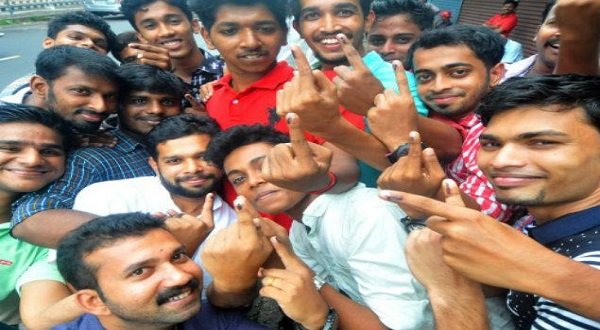NEW DELHI (Reuters) Prime Minister Narendra Modi’s Bharatiya Janata Party (BJP) should win power this week in Assam for the first time, exit polls showed on Monday, but trail regional groups in four other areas that have held polls.
Voting in stages over the past month ended on Monday in Assam, West Bengal, Tamil Nadu and Kerala states and the union territory of Puducherry. Results are due on Thursday.
A victory in Assam, a tinderbox of ethnic and religious animosities, would testify to the continuing appeal of the ruling Bharatiya Janata Party (BJP), while defeat elsewhere would reflect Modi’s difficulties in making inroads against popular regional parties.
 An exit poll by India Today-Axis My India predicted victory for the BJP in Assam, which borders Bhutan and Bangladesh. “Our historic victory in Assam will open new frontiers for the BJP in the northeast,” BJP national general secretary Ram Madhav said.
An exit poll by India Today-Axis My India predicted victory for the BJP in Assam, which borders Bhutan and Bangladesh. “Our historic victory in Assam will open new frontiers for the BJP in the northeast,” BJP national general secretary Ram Madhav said.
Modi waged a polarising election campaign in a bid to form the party’s first government there. In campaign rallies, he vowed to disenfranchise millions of Muslim immigrants in a response to rising discontent among the state’s Hindus.
The results should be a snapshot of Modi’s performance as he approaches the half-way mark of his five-year tenure.
Modi, 65, swept to power in 2014 with a promise of jobs and growth, playing down his roots in the powerful Hindu-nationalist umbrella group to which his party is affiliated.
A separate poll by ABP Ananda showed the party will be defeated in the eastern state of West Bengal and two southern states, Tamil Nadu and Kerala.
Victory in these states could have given Modi greater control over the upper house of parliament, which would put him in better position to push through key policies.
A majority of his key economic reforms are stalled, his push to turn the country into a manufacturing powerhouse has floundered and sizeable minority groups blame him and his party for pushing a Hindu nationalist agenda at their expense.
Yet his government has made progress elsewhere, most notably in the power sector where change is reaching distressed rural communities in Uttar Pradesh, India’s most populous state.
Modi must win in the Uttar Pradesh state poll next year to sustain his hope of one day gaining full control of parliament and a second term in 2019.
Opinion and exit polls have a patchy track record in India and surveys get carried out with sample sizes ranging from a few hundred to several thousand voters.
(Reporting by Rupam Jain; Editing by Tom Heneghan)


